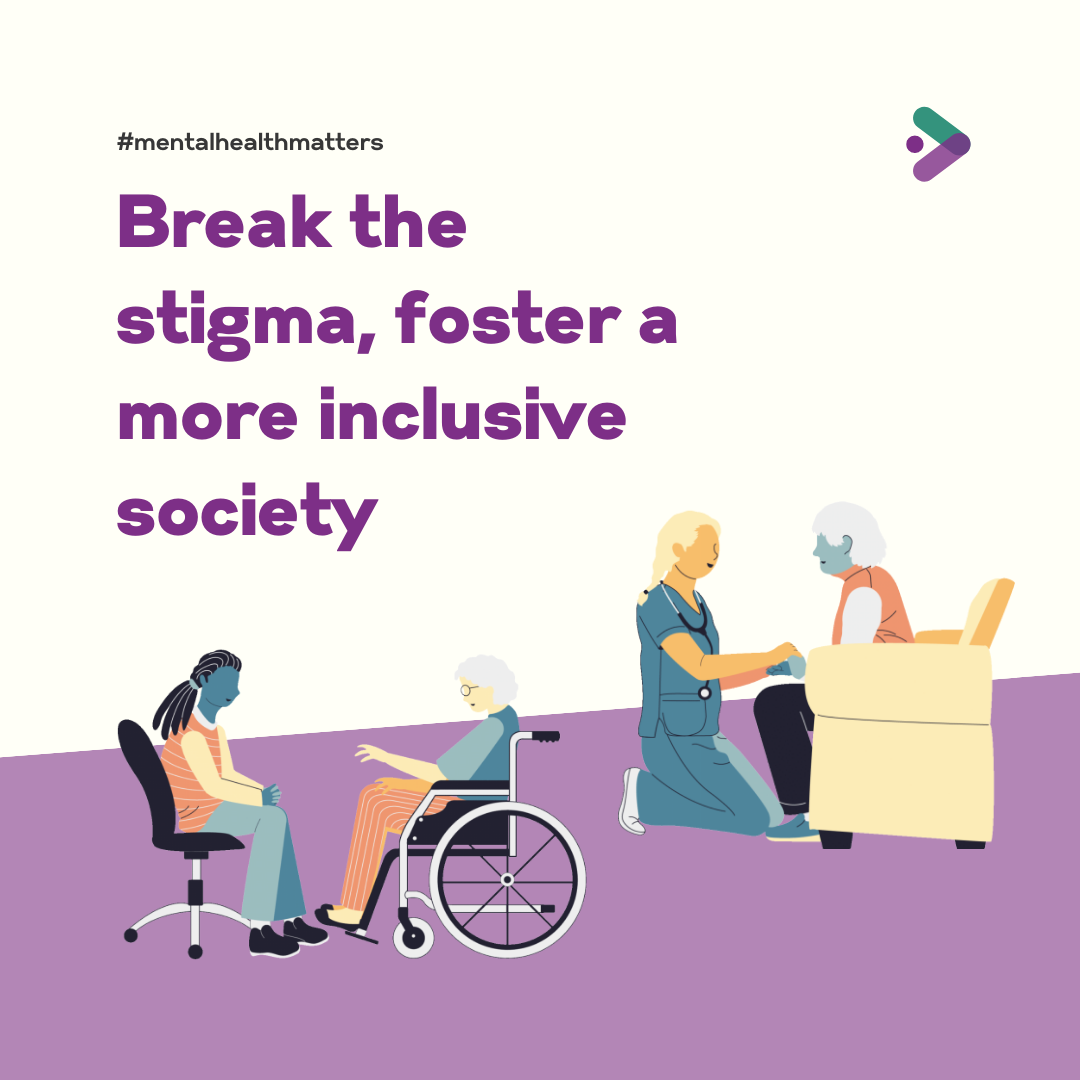Mental health stigmatisation poses a significant obstacle for individuals grappling with various mental health conditions, such as PTSD, schizophrenia, severe depression, and many others. Stigma, fuelled by misconceptions, fear, and negative stereotypes, results in discrimination and social exclusion – something we often hear from our clients. Overcoming this challenge and creating an inclusive society demands collaborative efforts from individuals, communities, and institutions alike.
Understanding the Roots of Stigma:
Stigma surrounding mental health often originates from a lack of understanding. Society’s limited knowledge and exposure to mental health conditions contribute to misconceptions and stereotypes. Fear of the unknown can further exacerbate the stigmatisation process, as individuals may harbor unfounded beliefs about the nature and consequences of mental health challenges.
Negative portrayals in media and popular culture also play a role in perpetuating stigmatisation. Fictional depictions that inaccurately portray mental health conditions can reinforce stereotypes and misconceptions, reinforcing the notion that individuals with such conditions are dangerous, unpredictable, or incapable of leading fulfilling lives.
What is the Impact of Stigma?
The consequences of mental health stigmatisation are far-reaching and detrimental. Individuals who experience stigma may feel ashamed, isolated, and reluctant to seek help. This hesitance often leads to delayed or inadequate treatment, exacerbating their condition and impeding their path to recovery.
Moreover, stigma affects individuals’ social relationships, educational opportunities, and employment prospects. Discrimination and exclusion can lead to strained personal connections, reduced academic achievements, and diminished professional growth. This perpetuates a cycle of marginalization, hindering individuals from fully participating in society.

What is our Role as Individuals?
Combatting mental health stigmatisation begins with individual action. Every person has the power to challenge misconceptions, promote understanding, and foster empathy. By educating ourselves about mental health conditions and sharing accurate information, we can dispel myths and replace them with knowledge and compassion.
Open dialogue is crucial in normalising conversations about mental health. Speaking openly about our own experiences or lending a supportive ear to others helps create safe spaces for discussion. Sharing stories reduces the sense of isolation that individuals with mental health challenges often face, encouraging others to seek help and support without fear of judgment.

What can our Community do to facilitate change?
Communities play a vital role in combating stigma. By cultivating an environment of acceptance and support, communities can empower individuals to embrace their mental health journeys. Peer support networks and community programs provide safe spaces for shared experiences, reducing isolation and fostering a sense of belonging.
Educational institutions, workplaces, and religious organisations also have a responsibility to promote mental health awareness and support systems. Implementing policies that prioritise mental well-being, offering mental health resources, and providing training to staff members can help create inclusive environments where everyone feels valued and supported.
Institutional Change:
Institutional change is instrumental in addressing mental health stigmatisation. Governments and policymakers must allocate sufficient resources to mental health services, ensuring access to affordable and quality care. Legislation should protect the rights of individuals with mental health conditions and prevent discrimination in areas such as employment, housing, and healthcare.
Media and entertainment industries should take an active role in challenging stereotypes and presenting realistic portrayals of mental health challenges. By showcasing diverse narratives and multidimensional characters, they can contribute to a more nuanced and accurate understanding of mental health conditions.
Conclusion:
Creating a more inclusive society necessitates collective efforts from individuals, communities, and institutions. By combating mental health stigmatisation, we can pave the way for a society that embraces diversity, fosters empathy, and provides support for individuals with mental health conditions. Through education, open dialogue, policy changes, and community support, we can dismantle the barriers of stigma and pave the way for a future where mental health is understood, accepted, and treated with compassion.
If you or someone you know is struggling with mental health, remember that help is available – there are many online resources. Alternatively, reach out and make a booking with one of our psychologists, contact us on (08) 9248 7852














